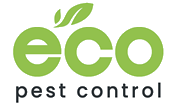The Dangers Of DIY Pest Control
Reasons Why DIY Pest Control Is Bad
DIY pest control may seem like an easy way to save money and take matters into your own hands. However, attempting to get rid of pests yourself without professional training, caution, or equipment often leads to more harm than good.
Here are the top reasons why DIY pest control is a bad idea.
1. You May Misidentify the Pest
Figuring out exactly what type of pest you’re dealing with is crucial for effective treatment. However, the average homeowner does not have enough knowledge of the subtle differences between species. For example, telling the difference between a cockroach and a palmetto bug or a mouse and a rat takes experience. Misidentifying the invader could lead you to purchase and use the wrong kind of products. At best, this means wasting money and time if the measures prove ineffective. At worst, it results in putting your home and health in danger.
2. DIY Pest Control Products Are Less Effective
The chemical pesticides and traps available to regular consumers have lower concentration formulations than commercial-grade products professionals use. This makes them notably less successful against stubborn pest populations.
You might kill some of the insects or rodents initially. But chances are the hardiest ones will survive and come back even stronger, now resistant to DIY formulas. This overuse causes bigger pest infestations down the road.
3. Improper Use Poses Risks
Using chemicals irresponsibly and without training is never a good idea. Setting traps in the wrong areas or applying the wrong amount of pesticide at the incorrect intervals can make issues worse. Not following the product label instructions can lead to dangerous outcomes.
Professionals use proper protective equipment during application, which DIYers often neglect. For example, too much pesticide residue left on everyday surfaces poses toxic risks to people and pets through skin contact and pesticide exposure, leading to adverse health effects such as eye irritation, blurred vision, or shortness of breath. Over time, this can even result in chronic poisoning. Additionally, certain chemicals may cause severe reactions, including birth defects if a pregnant woman is exposed.
Amateur mistakes like these often do ecological damage as well. In addition, they can harm others in the community. The pesticides can seep into soils and water systems, impacting local wildlife.
4. Infestations Spread to Neighbors
When DIY efforts merely force pests to retreat temporarily, the colonies or families simply move next door. The whole neighborhood soon suffers from widespread, uncontrolled infestation.
In apartment buildings and multi-family housing units, attempting to tackle pests single-handedly in one unit does nothing for the bigger picture. New pests make their way back in from other units or shared structural voids. Following professional advice is crucial in such settings.
5. DIY Fails to Offer Ongoing Prevention
DIY pest control treatments only deal with a temporary pest manifestation inside the home. Pest control services determine and eliminate the true root causes that allow bugs, insects, rodents, and wildlife to get in and thrive in the first place.
This takes an investigative process homeowners do not know how to replicate. Pest control experts know where to check for entries, nesting spots, food, and water sources. They develop customised plans to effectively seal off your home for the long period of time.
6. Health Hazards
Certain types of pests spread serious illnesses. Rodents and insects can directly transmit dangerous diseases to humans and pets through bites, waste matter, or contamination.
Attempting to catch and kill disease vector pests without precautions greatly raises infection risks, including allergic reactions and stings. These risks are even higher for vulnerable individuals like pregnant women. Pros use personal protective gear and containment protocols the average person does not have access to. Therefore, DIY pest control poses significant threats to human health.
7. DIY Pest Control Practices Often Backfire
So many homeowners end up with bigger, costlier pest problems after trying unsuccessfully to manage things solo. Frustrated, they finally call the professional pest control technician for emergency service. Exterminators charge premium rates for rush jobs cleaning up DIY pesticide spills or uncontrolled infestations.
In some cases, extensive repairs to homes may be necessary if wood structures or electrical systems face damage from invasive pests that homeowners allowed free reign. Preventing expensive destruction is much wiser than handling catastrophe cleanup.
When to Call In Backup
Dealing with occasional ants or spiders yourself with mainstream products may not do excessive harm. However, at the first signs of larger infestations of pests like roaches, rodents, termites, or wildlife, skip the DIY pest management solution and bring in reinforcements immediately.
Relying on pest control professionals as soon as issues exceed your skill level makes the process faster and more affordable. It also keeps your home safe and avoids the risk to people, pets, and the environment. Don’t wait until conditions are out of control before getting qualified assistance.
Conclusion
Controlling pests demands technical expertise, regulated tools, and a strategic approach. Safety should be the number one priority, followed by effective, lasting relief. For these reasons, DIY pest control methods pale highly in comparison to hiring a professional pest control company like Eco Pest Control Perth.
While calling effective pest control operators may cost more upfront, it saves money over time. You avoid health risks, property damage, and recurring infestations. Pros get rid of pests the right way on the first try because they know a lot about how to safely remove them in your home.


